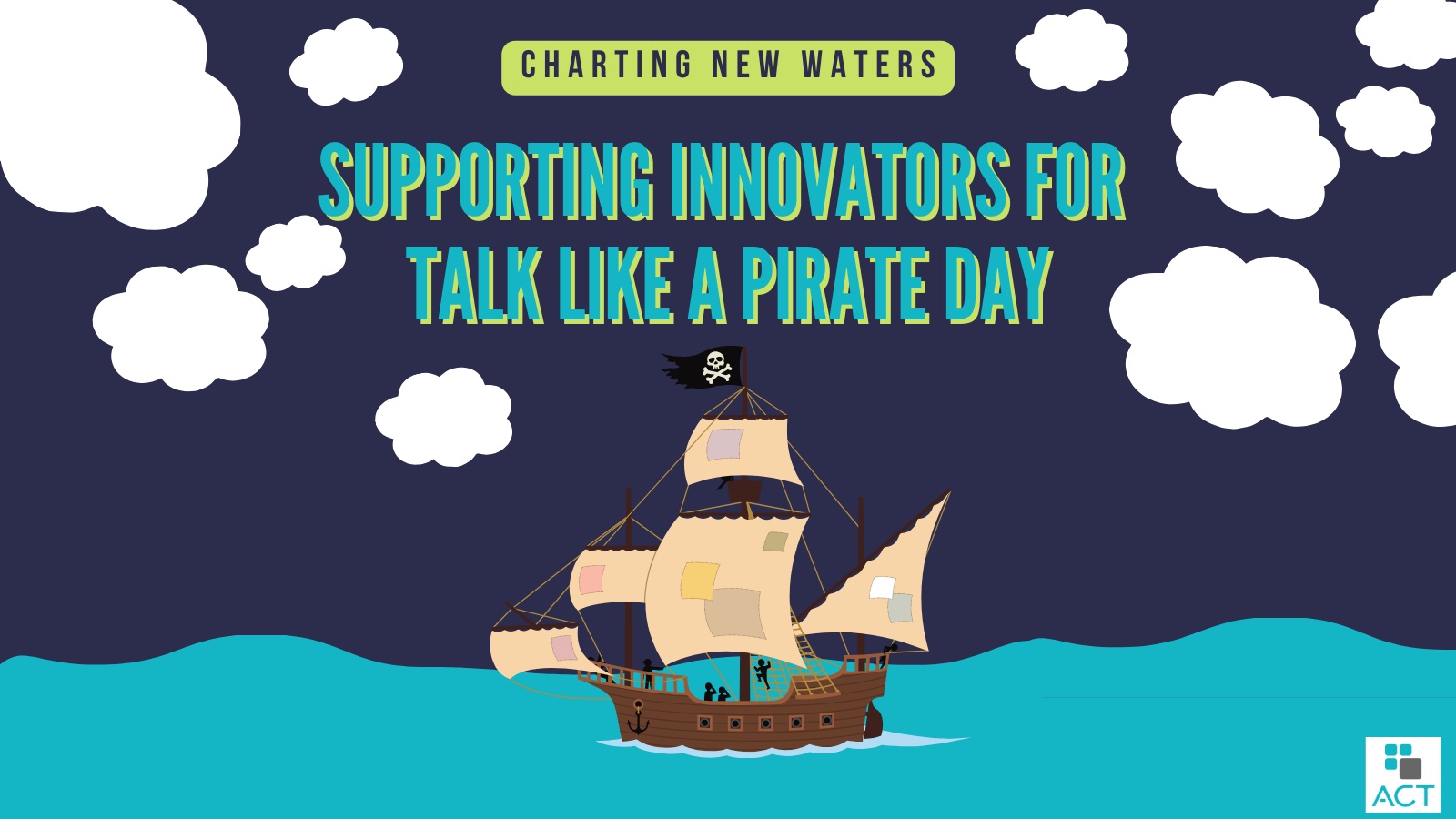International Talk Like a Pirate Day (TLAPD) emerged in the mid-‘90s as a day for people across the globe to “talk and act like pirates for the day,” and although this somewhat unserious observance started as a joke by two friends, we appreciate the opportunity to celebrate the importance of intellectual property rights for creators, users, and lovers of innovation. Lovers of TLAPD and its IP inclusion have championed September 19th with the notion that “It may be fun to talk like a pirate, but don’t act like one!” (i.e., avoid downloading and streaming pirated content to protect creators’ and innovators’ intellectual property).
Despite this, and many other observances centered around calling attention to the value that strong IP laws bring to innovators, some— Black, Indigenous, and People of Color (BIPOC), women, and other groups—have been historically underrepresented in the patent system. Strong IP and copyright protections are essential to protect the livelihood of small and medium-sized innovators, and as we continue to grow a diverse app economy, we must ensure all entrepreneurs have their innovations protected. Here are three things underrepresented innovators need to know ahead of “Talk Like a Pirate Day” to help protect their IP.
Protecting IP
-
-
- Copyright Alliance IPDC Program
-
The Copyright Alliance rolled out an Initiative to Promote Diversity in Copyright (IPDC program) for BIPOC creators. Participants of the initiative work to bring together volunteers and sponsors across the copyright community so that BIPOC innovators can be made aware of the benefits of copyright registration for their own creations. Learn more about the IPDC Program and how to be a Copyright Alliance member here.
-
-
- USPTO’s Council for Inclusive Innovation
-
Originating from the USPTO’s 2018 SUCCESS Act findings, the CI2 initiative identified a stark underrepresentation of women and minorities among U.S. patent recipients. Recognizing this disparity, the report proposed assembling an elite council of leaders from the realms of industry, academia, and government. Their collective goal? To shape a national strategy that amplifies the voices and contributions of these marginalized groups, championing them as inventors, trailblazing entrepreneurs, and frontrunners in innovation. Learn how to become involved here.
-
-
- S. Copyright Office’s Artificial Intelligence Initiative
Generative artificial intelligence (AI) platforms are rapidly becoming essential tools for innovators, streamlining the creation of IP-protected works. However, concerns arise about AI potentially infringing IP by training on public data or users’ private data. The U.S. is evaluating regulations, but a crucial issue is how unclear rules might affect disadvantaged users. Those without resources risk unintentional IP infringement and potential lawsuits when using AI platforms. With this in mind, the United States Copyright Office rolled out an initiative, including a registration guidance, to address the copyrightability and registration issues raised by AI. To learn more about this initiative or to provide your experience to the Office’s current inquiry on the intersection of AI and Copyright, click here.
- S. Copyright Office’s Artificial Intelligence Initiative
-
Final Thoughts
Small businesses are the backbone of the global economy, and for innovative companies, their intellectual property is their core asset. By encouraging entrepreneurs to take risks and enabling them to attract investment, intellectual property rights have helped small businesses lead the app economy in innovation and ensuring the competitiveness of small businesses by protecting IP rights. This International Talk Like a Pirate Day, and every day, we hope to see policymakers work to empower underrepresented entrepreneurs.
